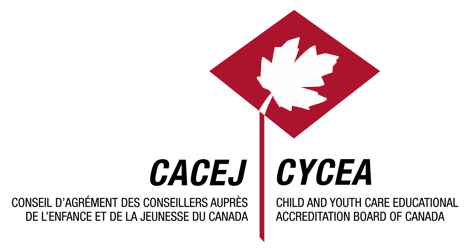Program Overview
Graduates of the Child and Youth Care program engage with children, youth, and their families in their everyday lives, use a relational approach to developing therapeutic relationships and build on their strengths and capacities to promote optimal development and facilitate positive changes. Many of the children and youth receiving care, and their families, experience complex needs and challenges associated with multiple factors such as socioeconomic factors, systemic factors, mental health, trauma, cognition, learning, and/or developmental exceptionalities and/or involvement in the justice system.
Child and Youth Care graduates demonstrate an understanding of and ability to adhere to values and guiding principles in their practice. These include but are not limited to:
- A belief in child and youth-centred, holistic, developmental, and ecological perspectives
- A commitment to anti-oppressive practice, anti-racist practice, cultural safety, and cultural humility
- Knowledge of evidence-based, evidence-informed, trauma-informed and strength-based interventions
- A focus on self-awareness and self-advocacy and the promotion of resiliency
Child and Youth Care practitioners adhere to professional codes of ethics, and all relevant legislation governing the systems and services in which child and youth care practitioners are employed.
Practitioners are committed to evidence-based research, and evidence-informed practice and engage in continuing professional education to support ongoing professional growth and competence in Child and Youth Care practice; including the use of proactive supervision seeking from both those assigned to them as well as ascribed mentorships.
Program Highlights
- Learn to Implement and evaluate a range of prevention, intervention and treatment strategies for children, youth and their families with difficult home situations, substance abuse, behavioural problems, mental health challenges, homelessness, self-harm, suicidal ideation and conflicts with the law, Interventions include crisis intervention, conflict management, problem solving, counselling, activity programming and group work.
- Interactive classroom work
- Develop clinical observation and reporting skills.
- Understand and develop therapeutic relationships
- Extensive full-time field placement experience in each year of study whereby theory is integrated with practice. First Year: 240 hours; Second Year: 480 hours; Third Year: 480 hours.
- Student membership in the Ontario Association of Child and Youth Care, with access to the Relational Child and Youth Care Journal, e-books, and discounts for conferences and workshops.
- All faculty are experienced Child and Youth Care practitioners
- All faculty hold Child and Youth Care credentials and are members of the Ontario Association of Child and Youth Care
Career Opportunities
Child and Youth Care graduates are valuable members of inter-professional teams and can expect to work with children, youth and their families across a variety of settings, including community-based child and youth development programs, parent education and family support, school-based programs, community mental health, group care, live-in treatment centres, day and live-in treatment programs, early intervention, home-based care and treatment, private practice, clinical facilities, child and youth mental health and psychiatric centres, rehabilitation programs, paediatric health care, child protection and youth justice.
Degree Completions
Graduates of the Child & Youth Care program with a minimum GPA of 3.0 may be eligible to block transfer into Year 3 of Degrees in Disability Studies, Psychology and Social Work at the University of Windsor. Graduates may also be admitted into the third year of the Bachelor of Justice Studies Degree at Royal Roads University, the Bachelor of Child and Youth Care at Toronto Metropolitan University, and the Bachelor of Child and Youth Care at Humber College.
Professional Accreditation and Affiliations
- Child and Youth Care Educational Accreditation Board of Canada (CYCEAB)
- Ontario Association of Child and Youth Care (OACYC)
